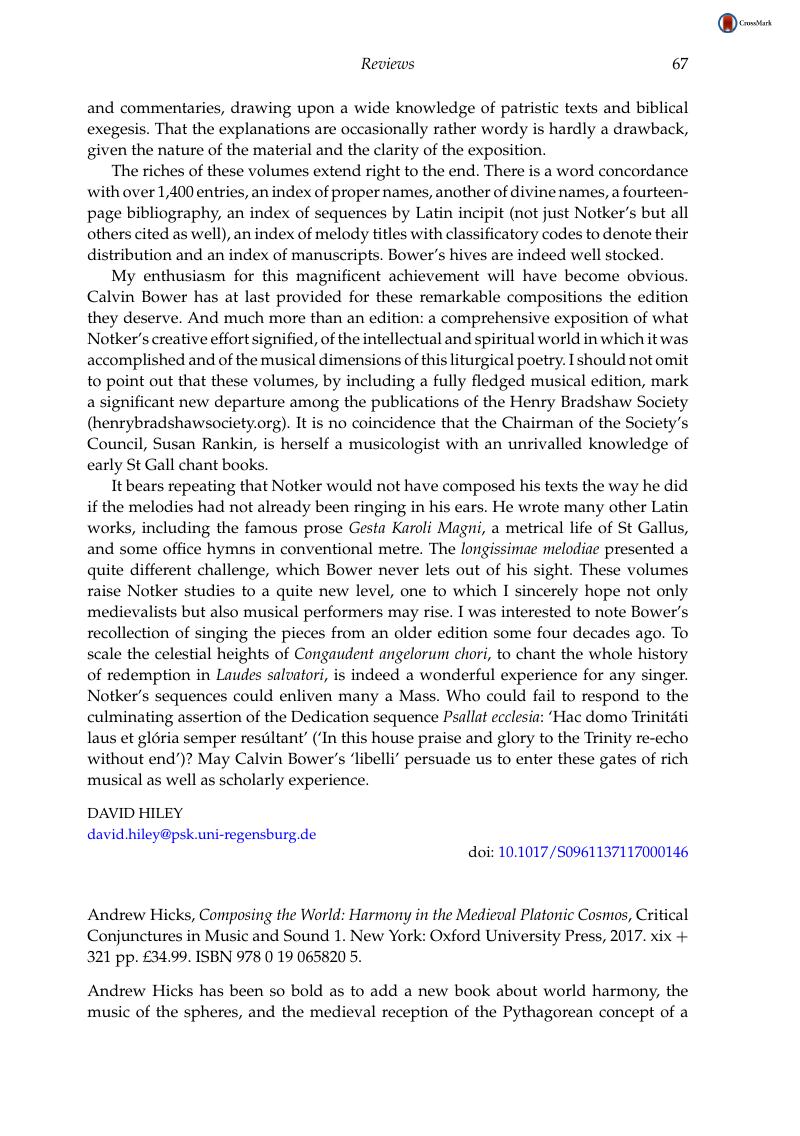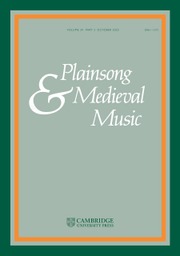No CrossRef data available.
Article contents
Andrew Hicks, Composing the World: Harmony in the Medieval Platonic Cosmos, Critical Conjunctures in Music and Sound 1. New York: Oxford University Press, 2017. xix + 321 pp. £34.99. ISBN 978 0 19 065820 5.
Published online by Cambridge University Press: 02 April 2018
Abstract

- Type
- Reviews
- Information
- Copyright
- Copyright © Cambridge University Press, 2018
References
1 I find it curious that although the footnotes and bibliography of the book are really complete, Joscelyn Godwin's work is completely absent. Does the open new-ageiness of his writings not agree with the author's idea of academically sound work? I don't think Godwin deserves to be banned from the scene in this manner, especially not his groundbreaking Harmonies of Heaven and Earth: The Spiritual Dimension of Music from Antiquity to the Avant-Garde (London, 1986).
2 To give just a few examples of sentences that took some unpacking before I could grasp their meaning: ‘On the other hand, nature is vitally transcendent, insofar as it is causally prior to any enmattered realisation. Without its differentially distributed vitality, there are no bodies, no natural kinds, which could, by force of its vitality, strive for their own natural replication’ (p. 41); or ‘From this perspective, the world is subject to variously configured disciplinary regulations and is ordered (in this instance) through the division of philosophy, the textualised and discursive aggregate of the known and the knowable’ (pp. 66–7). The book is very well written, but full of sentences that require concentrated, slow reading.




